Last week I shared a short intro to the Gilded Age and how it got its name. It was a time of enormous excess among the upper classes of society and rapidly changing cultural norms as the Progressive Era got underway. These trends are pointedly reflected in Gilded Age fashions worn by women. The excess and opulence of the early Gilded Age is seen in the dresses of the era, and the changing cultural norms are seen in the quick and drastic changes in styles, from bustles and ruffles to long lines and tailored suits.
Let’s take a look at the big fashion trends during this dynamic time in American history.
A time of change
The Gilded Age is generally thought to refer to the years from roughly 1870 to 1900. It is the focus of my museum presentations on fashion history and women’s rights as the styles from beginning to end are so different. The beginning of the era saw a return to dresses inspired by two hallmark looks from the past: the robe a la francais and the polonaise.
The robe a la francais style is seen in many of the dresses of the time that are designed to mimic the open overskirt of the look.
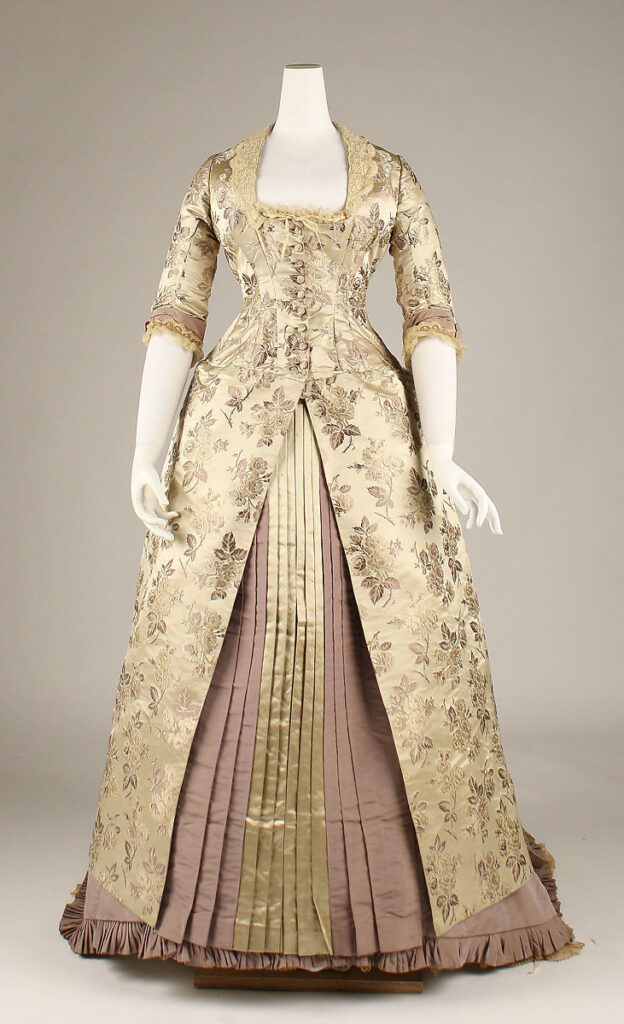
The polonaise, on the other hand, makes a bit of a comeback with the bustle, many of which included ties to create the desired look.
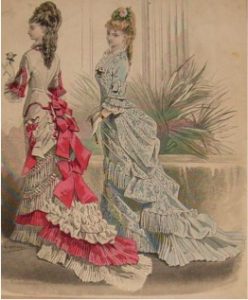
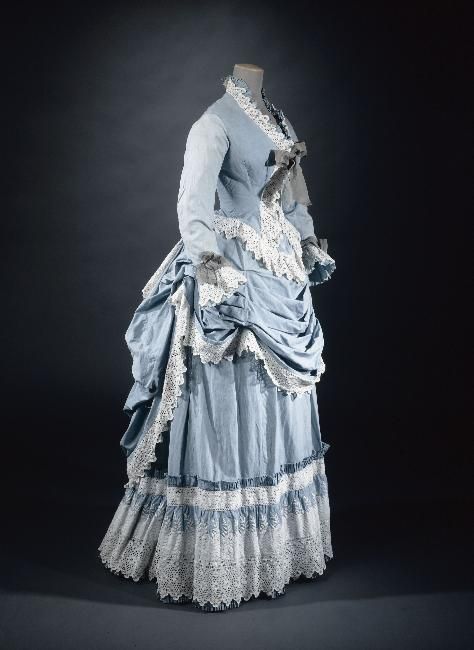
The bustle began as a smooth, tight line around 1880 and inflated to impressive proportions from about 1884 to 1886. This is one of my personal favorite looks from fashion history.
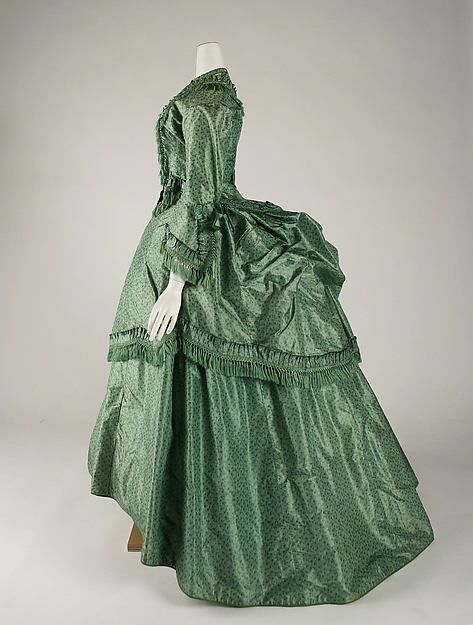
Enter the New Woman
The bustle would rise and then fall from use entirely by 1890. We then see dresses moving toward the A-line cut and the emergence of the S-silhouette. For a short time emphasis would be at the sleeves, although it was not as prominent a trend as the hoop skirt or bustle had been in previous decades.
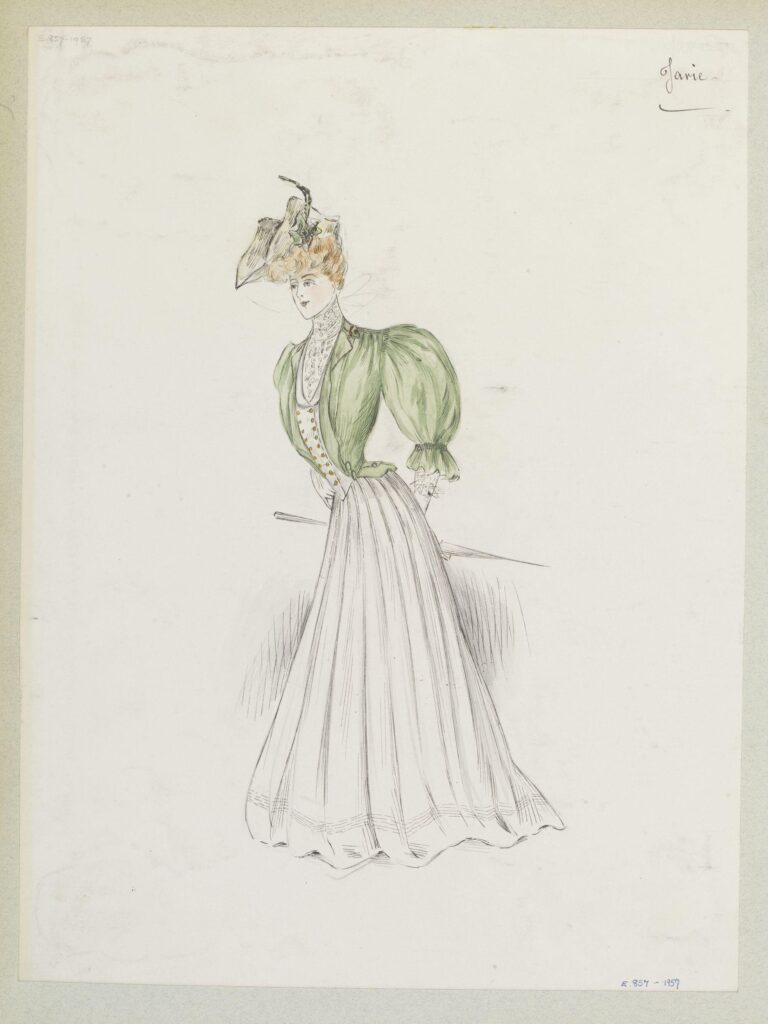
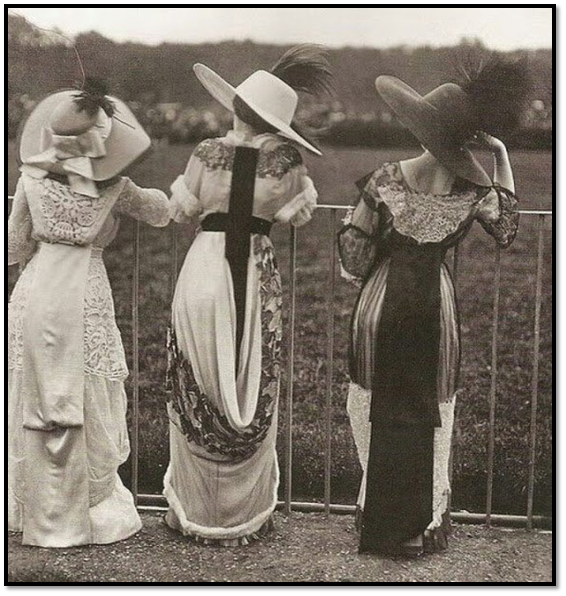
As the century came to a close the Gibson Girl look would become the primary evening look and tailored suits would become increasingly popular. I will cover them in an upcoming post.
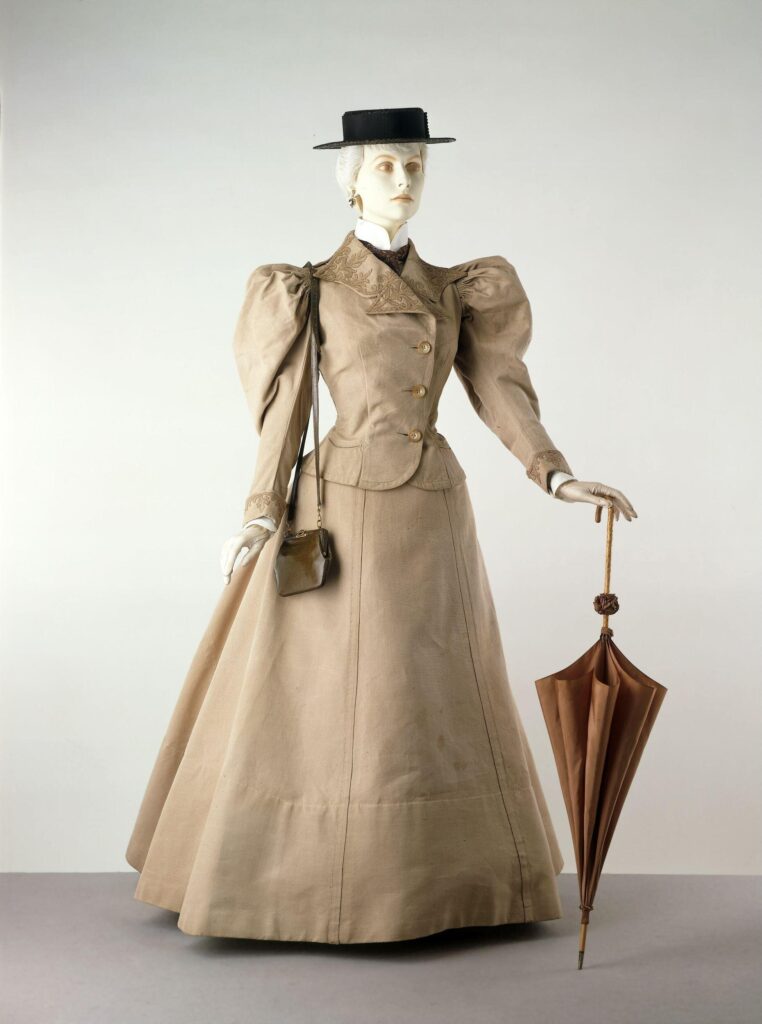
Other early Gilded Age trends
Says Alden O’Brien, Curator of Costume and Textiles at the Daughters of the American Revolution Museum: “Clothing styles always reflect the trends of the decorative arts and furnishings their day. Not surprisingly, it was a period of excess.” I love how women’s clothing during the Gilded Age has so much in common with drapery! For instance:
Ruffles
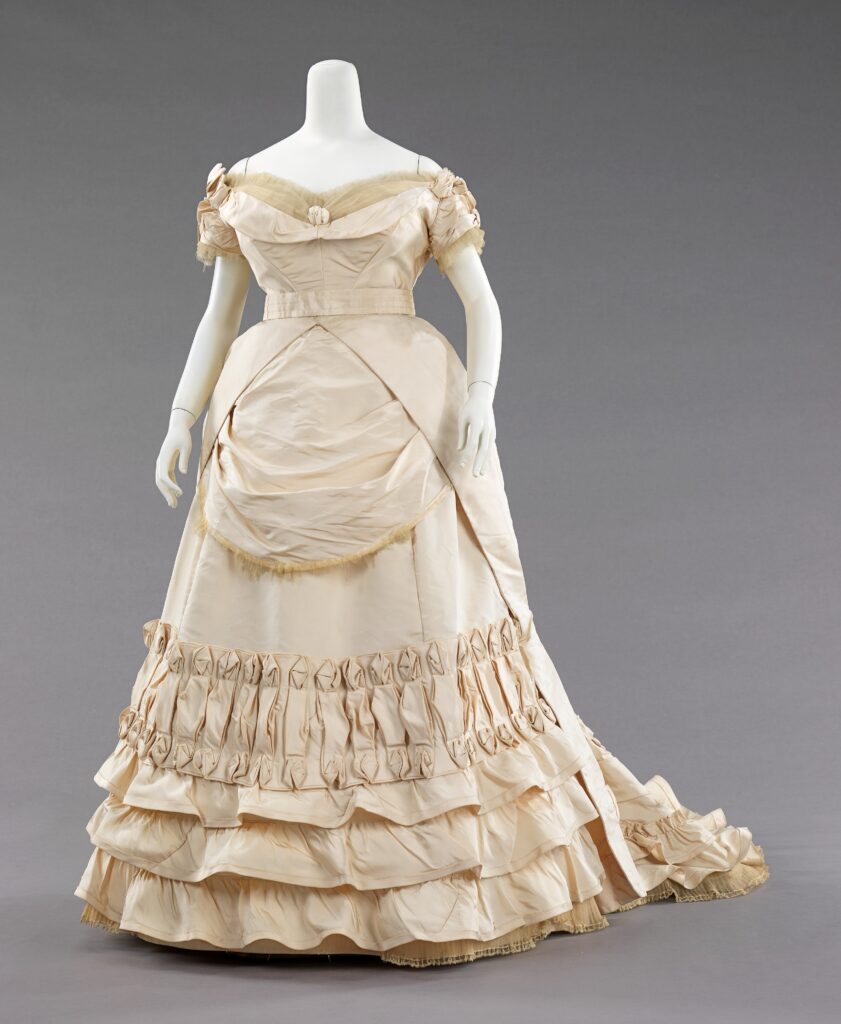
Fringe
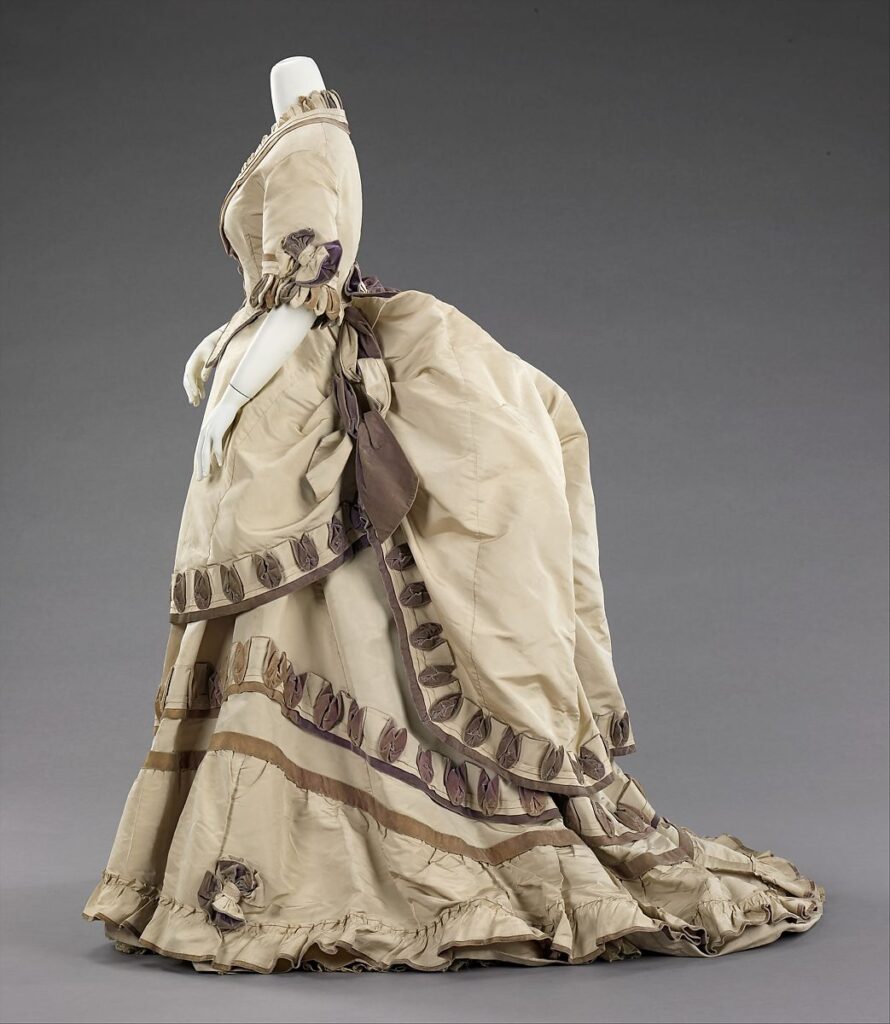
Shirring
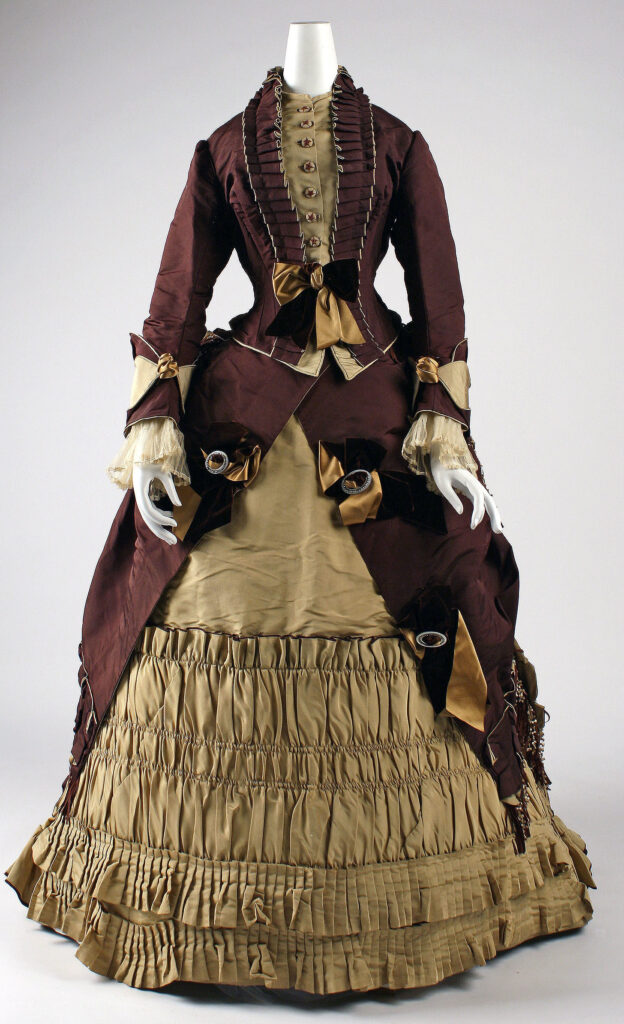
Pleats
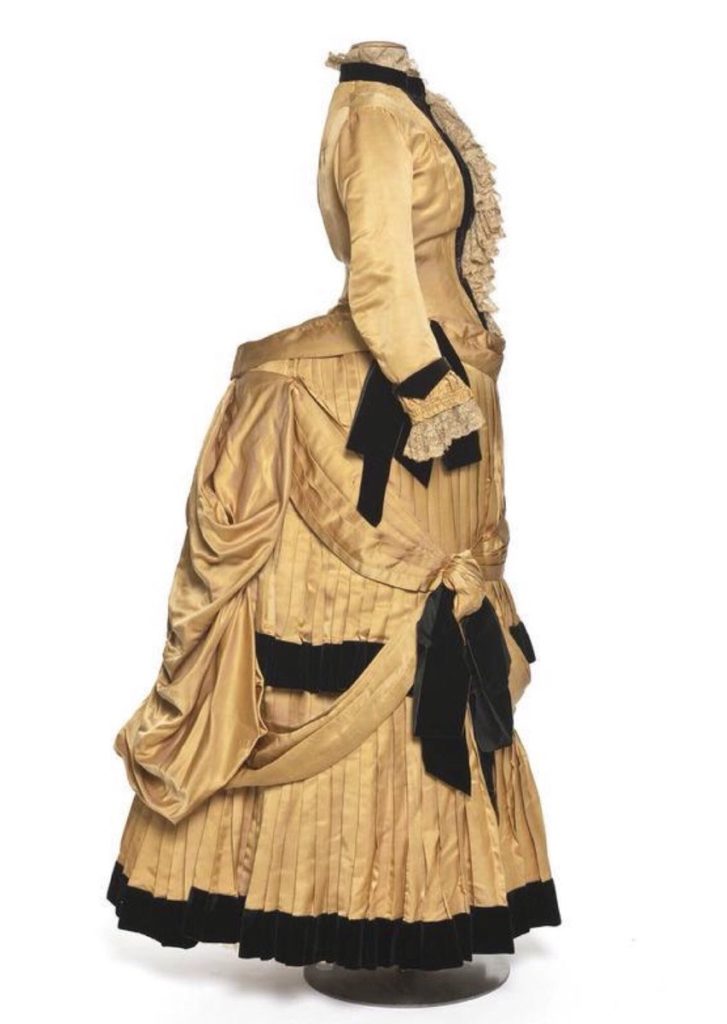
Color
More so than in other time periods that I’ve studied is a huge focus on color during the Gilded Age. One of the massive trends was to combine contrasting colors, and designers took it to an art form. However it wasn’t all about experimentation. Clear consensus among designers and dress makers existed as to the acceptable ways to pair colors with each other.
For instance, The Art of Dressing Well by S.A. Frost, published in 1870, contains 24 pages on the proper selection of color. As to where to begin when selecting contrasting colors Frost writes:
“Harmony, or a harmonious arrangement and combination of colors, we may consider equivalent to an agreeable effect of color in a dress. The object of contrast is to strengthen and enforce the impression produced by the leader color, or combination of colors; to relieve and invigorate, not to rival, weaken, or interfere with it.”
On the other hand, considering combining like colors was abhorrent. Frost writes of the notion:
“The co-existence and contiguity of two colors of equal intensity, and equal in quantity, is a barbarism utterly repugnant to good taste, and opposed to every principle of art.”
Want to know how to properly combine colors for your next Gilded Age ensemble? Among the many suggested combinations Frost suggests the following:
Scarlet: paired with gold and black
Crimson: paired with white, blue, or gold
Blue: paired with orange (I love this one!)
Orange: worn alone or with small amounts of purple, black, or white
(note: orange appears to have been one of the most popular colors for women’s wear at the time)
Purple: paired with gold or orange
Grey: paired with white

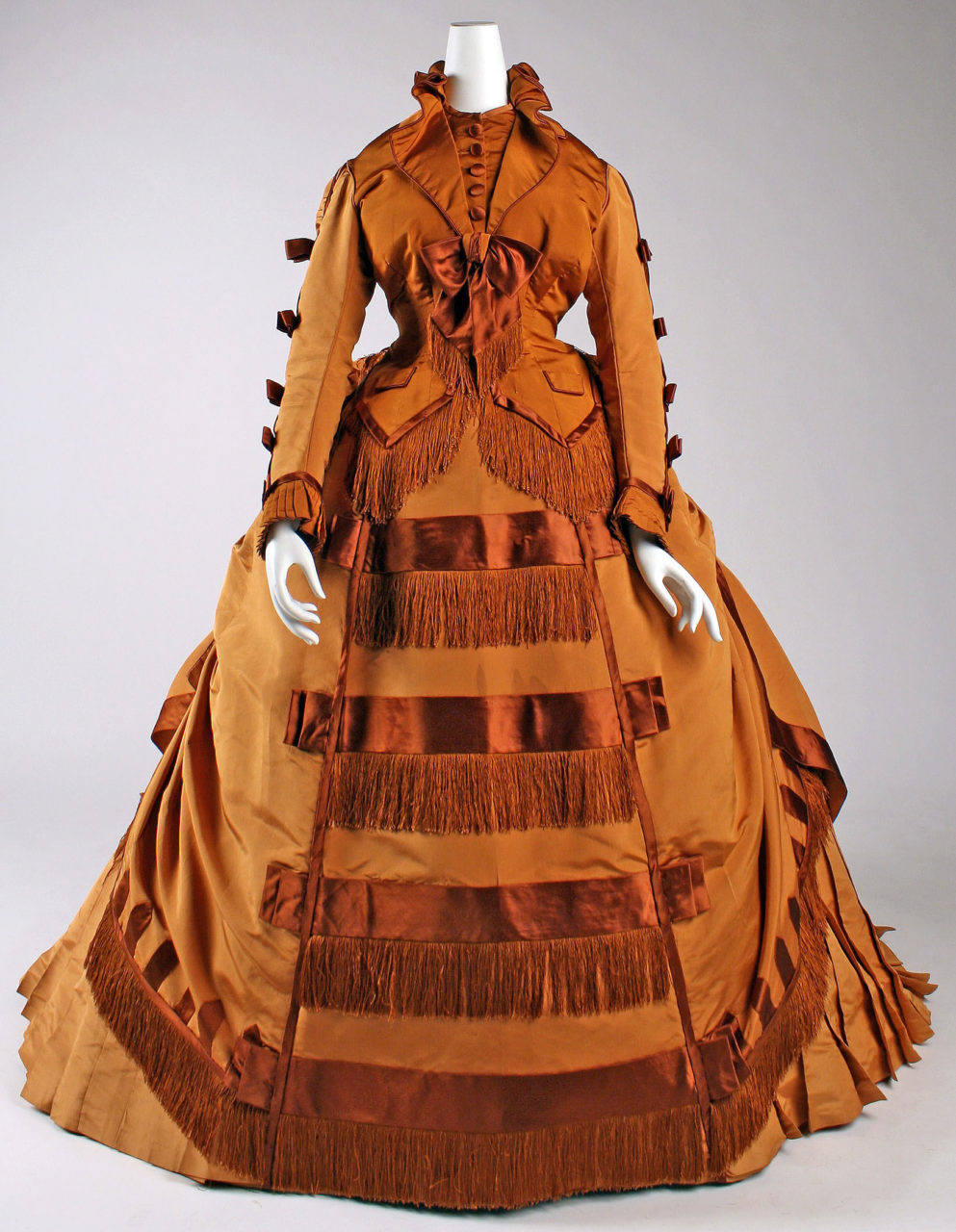
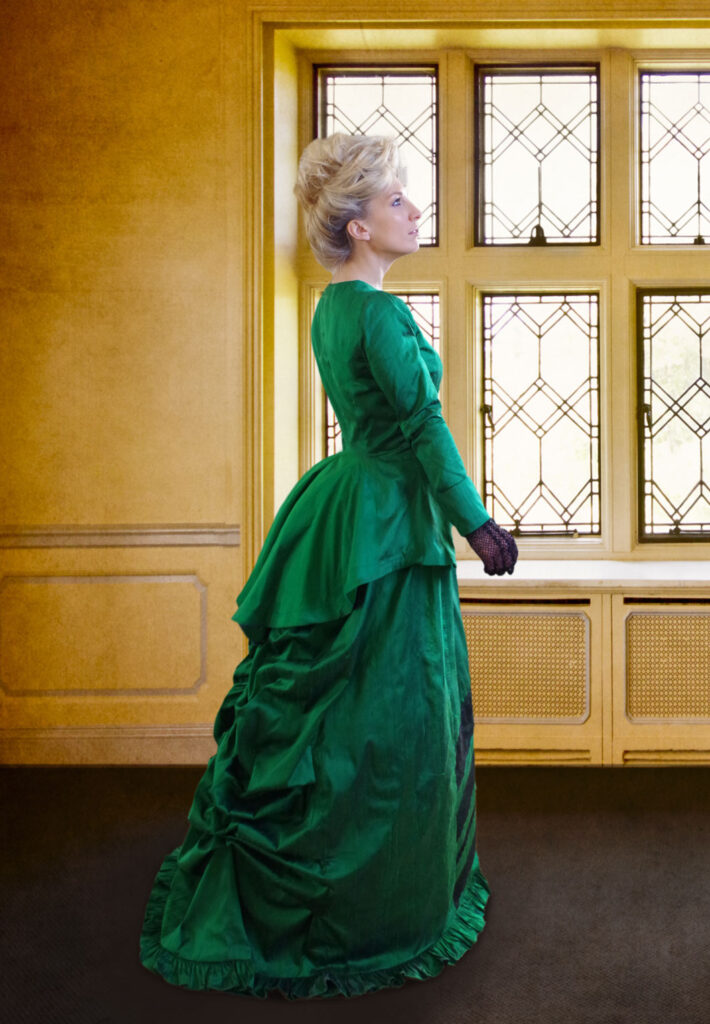
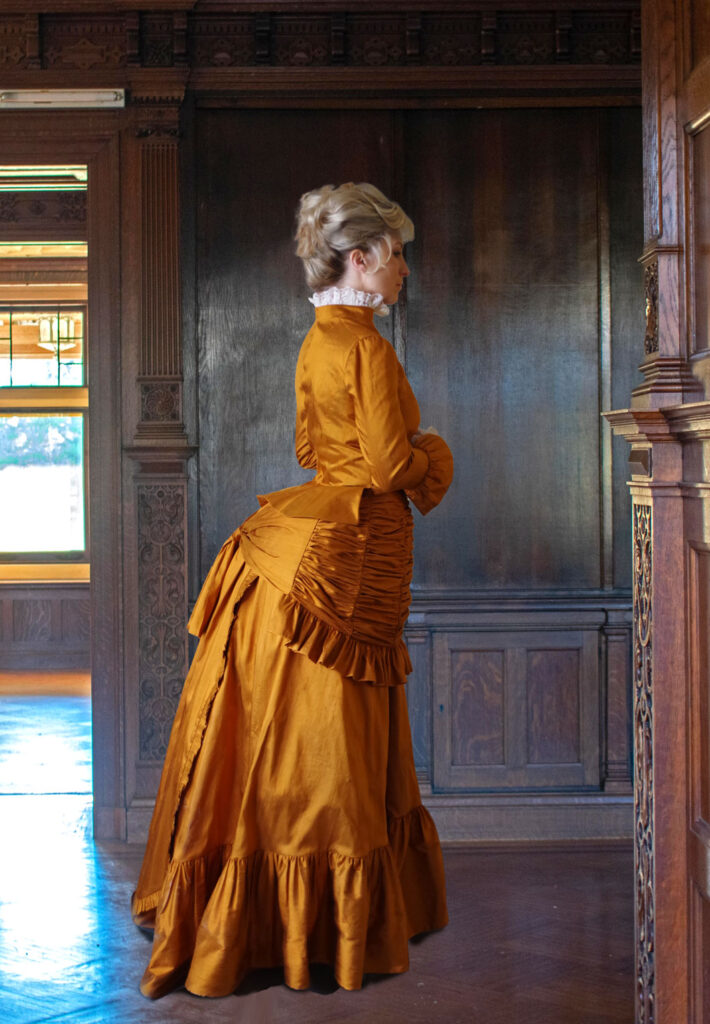
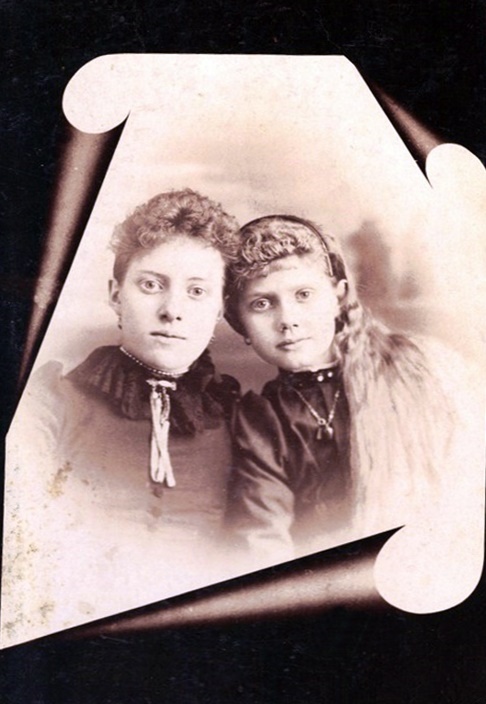
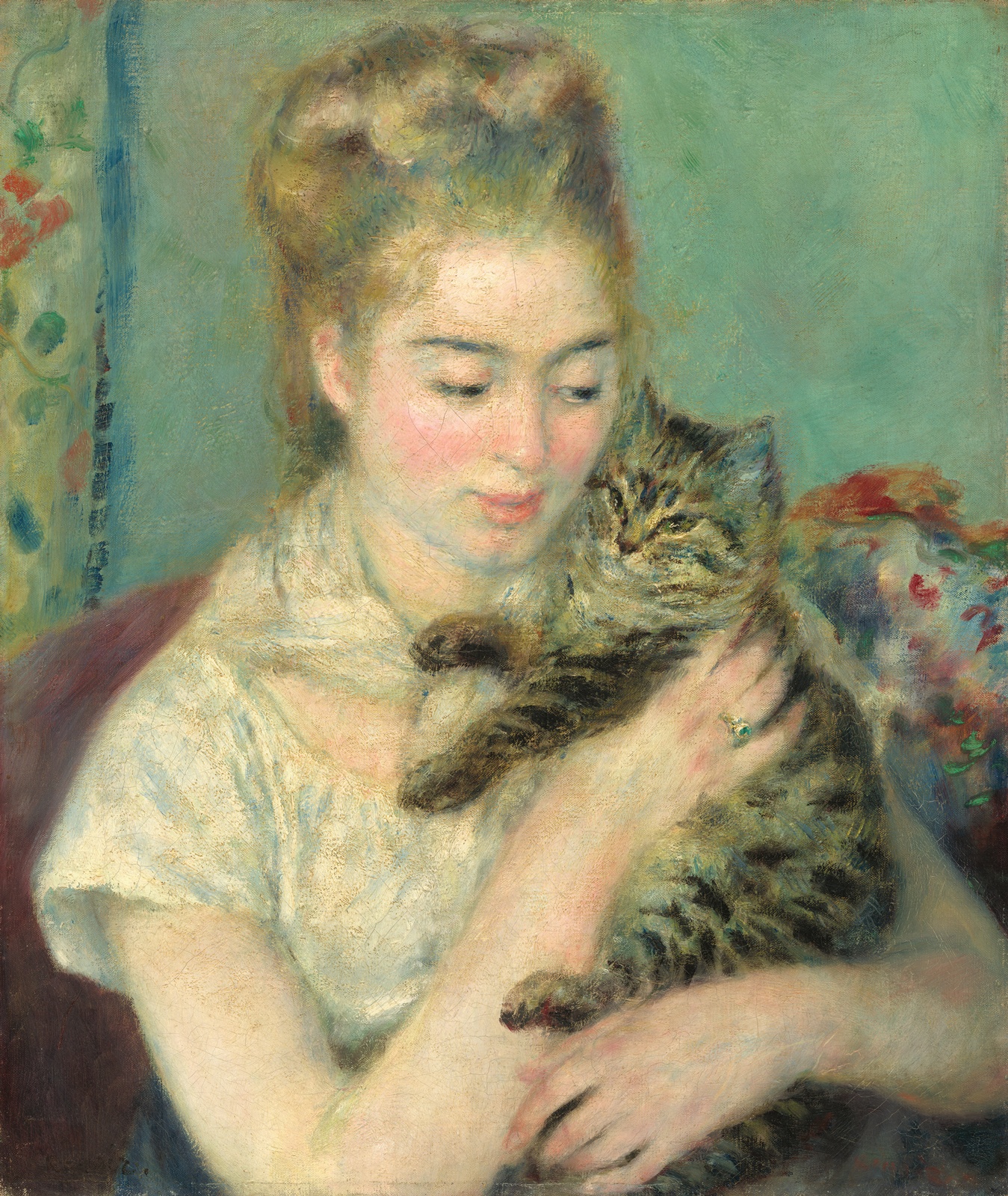
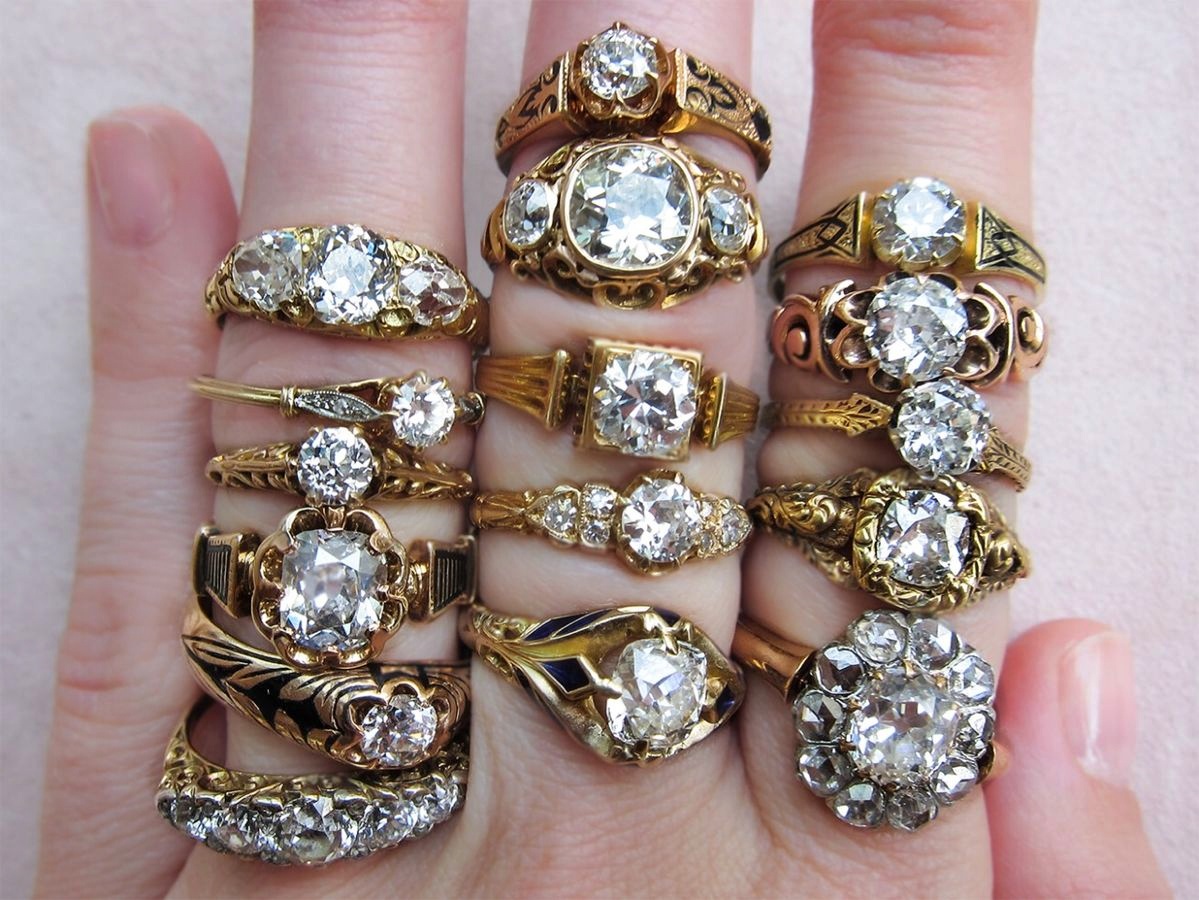
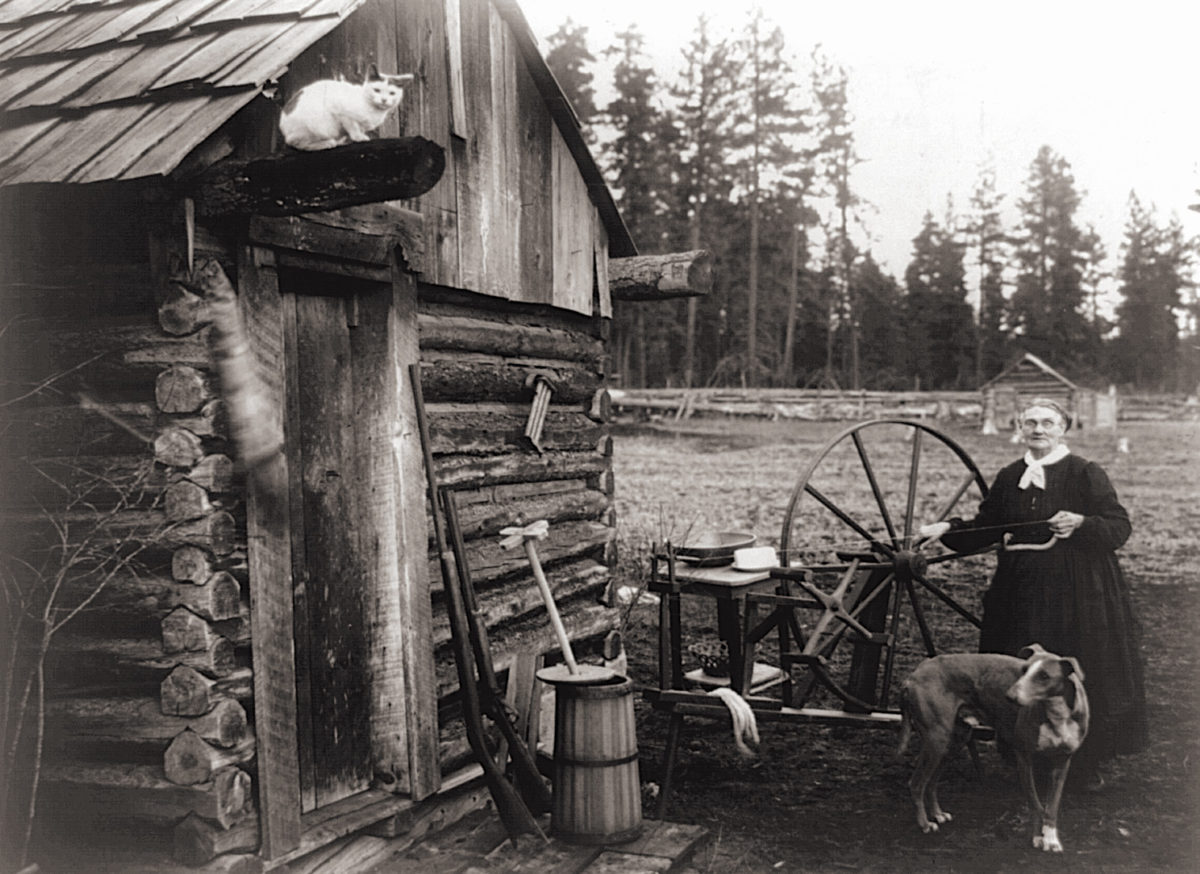
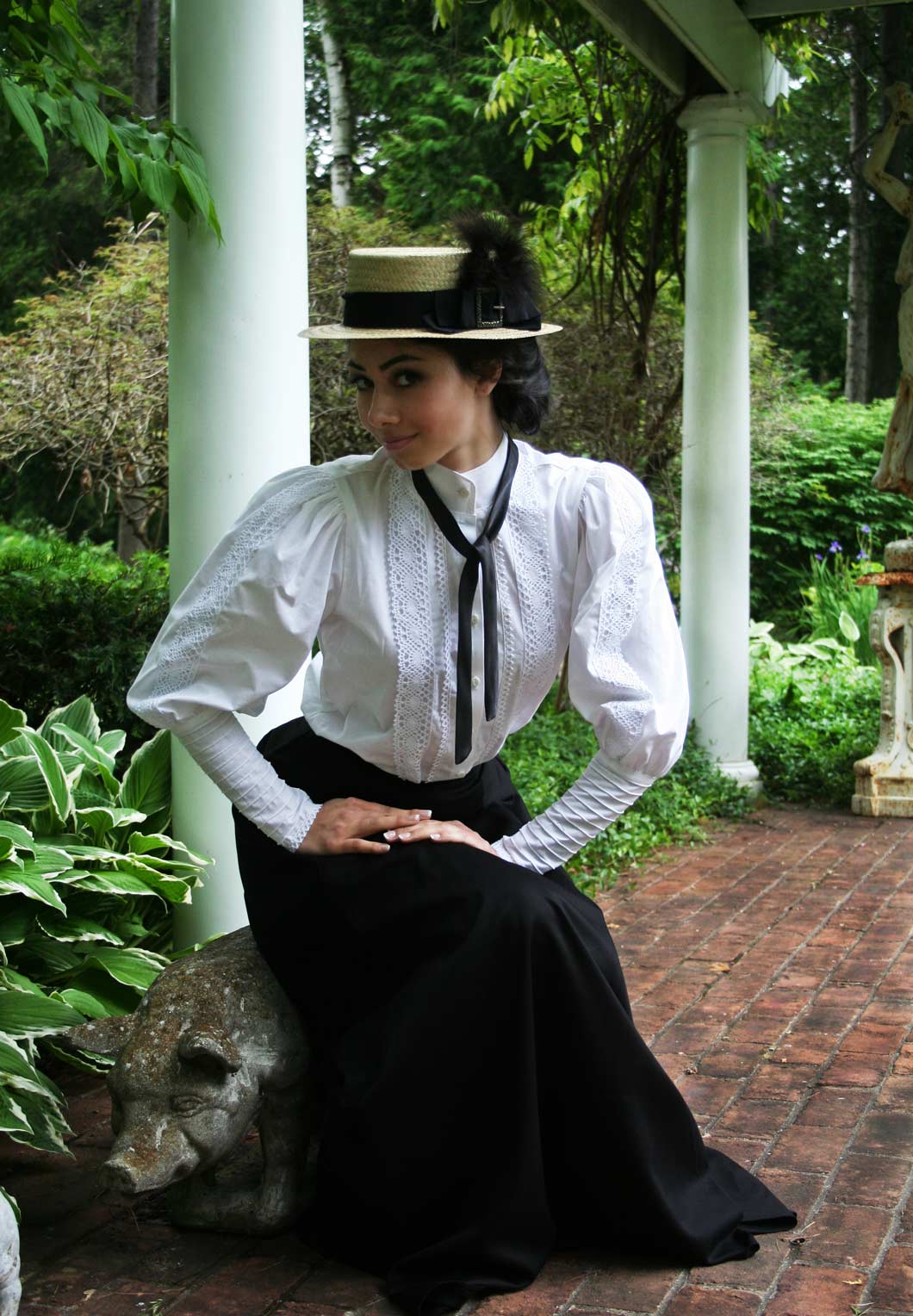
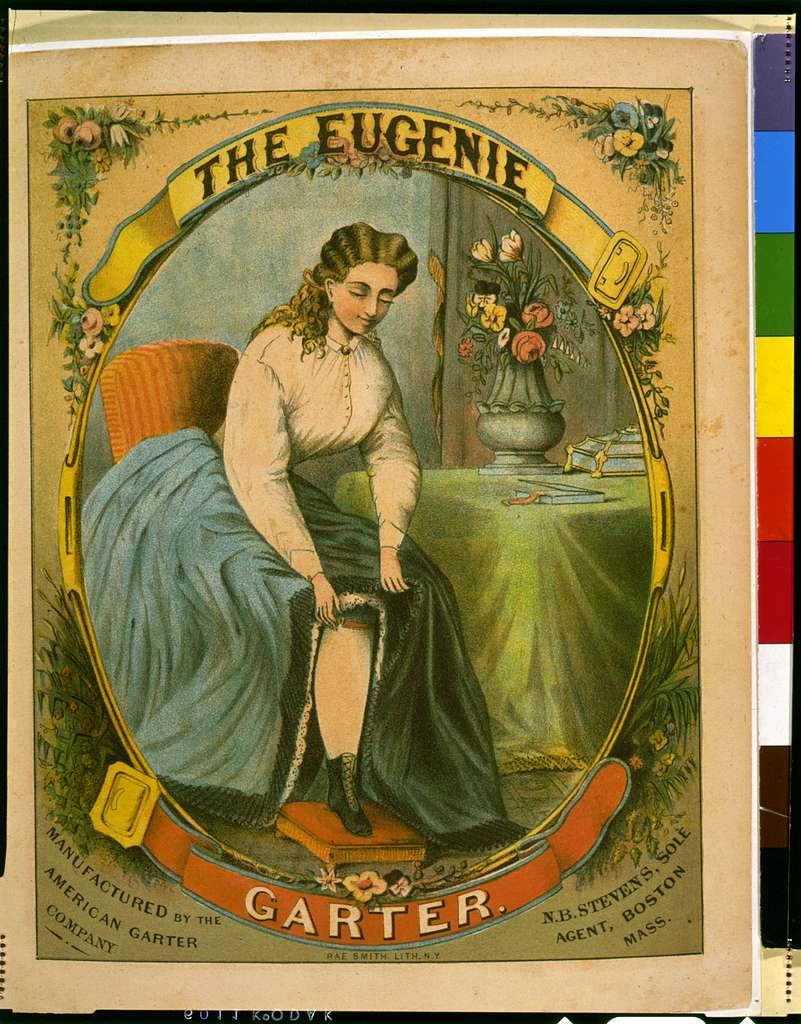
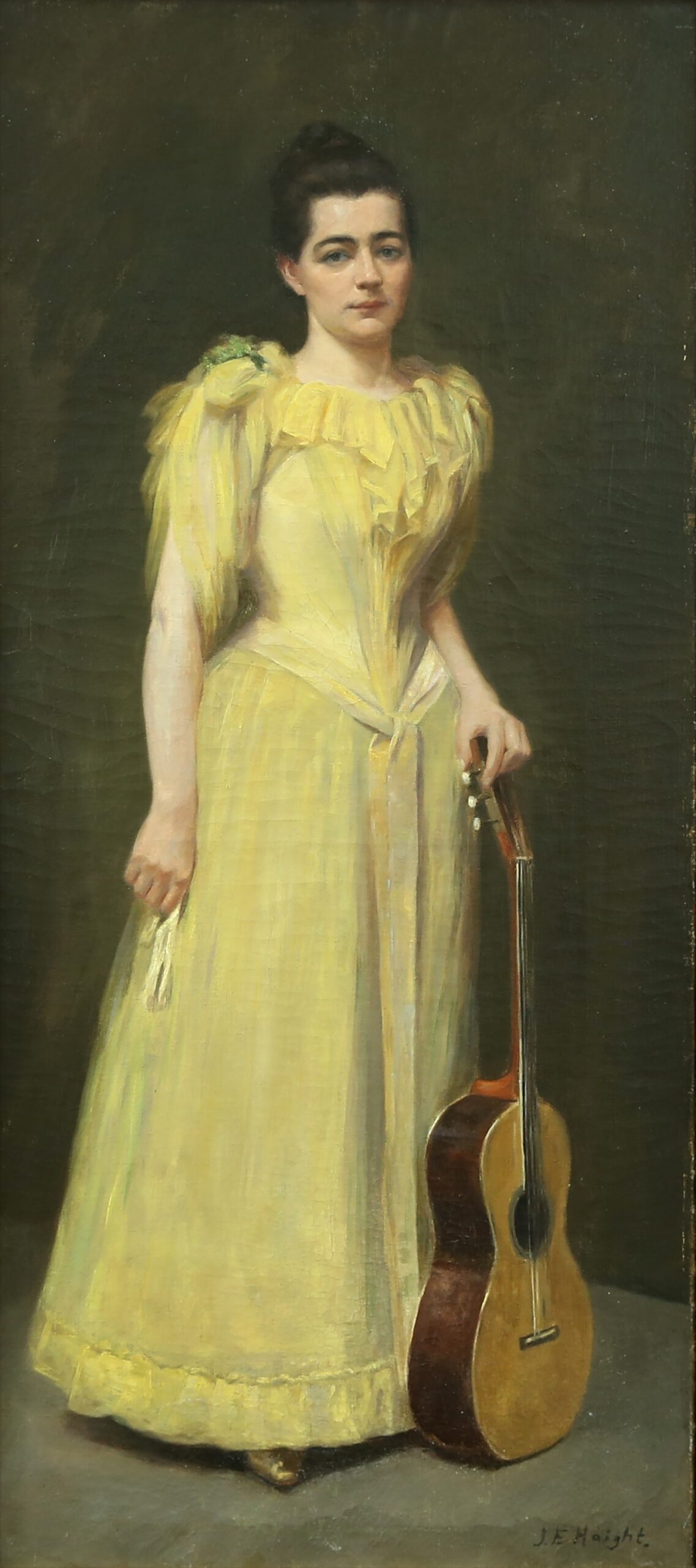
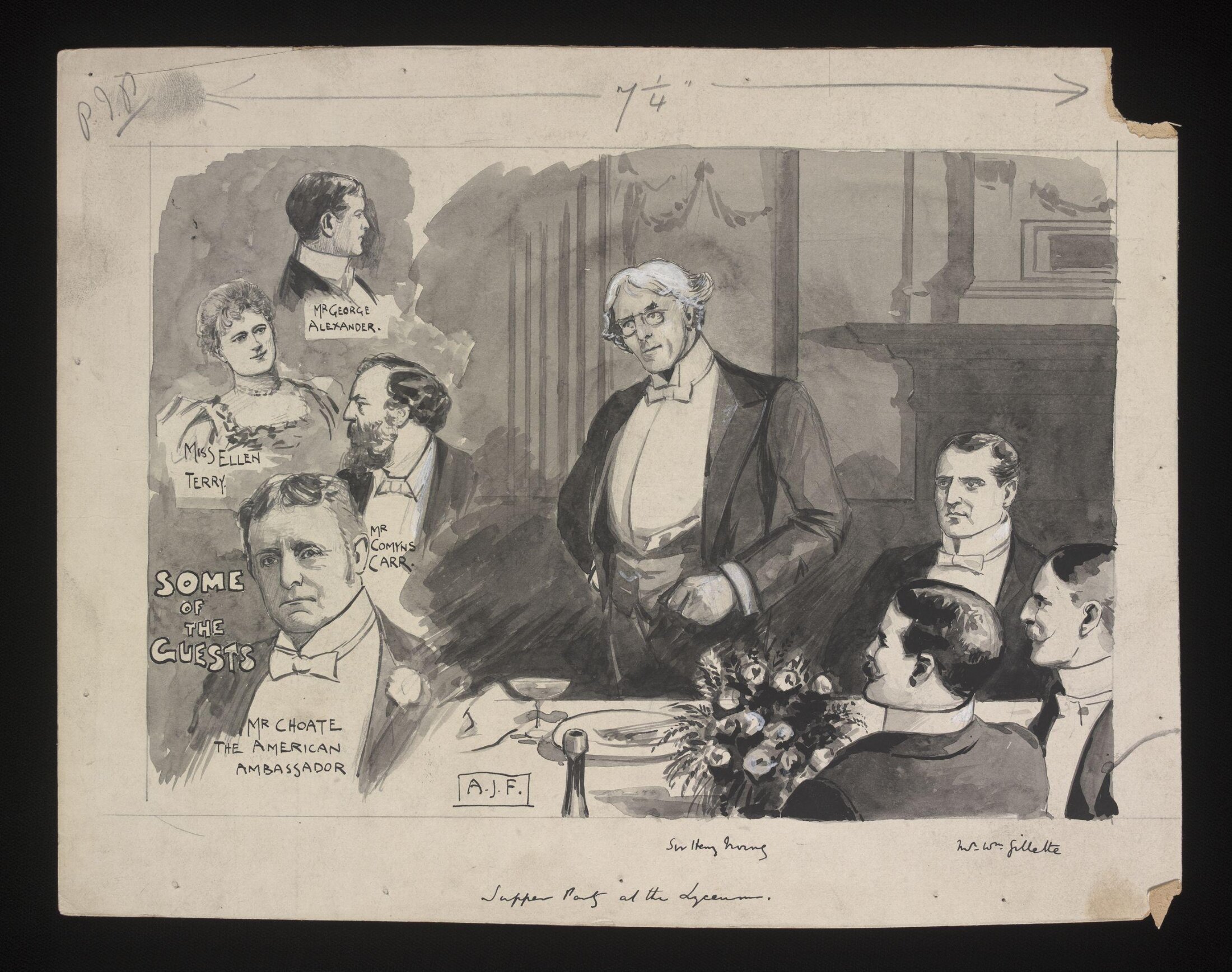
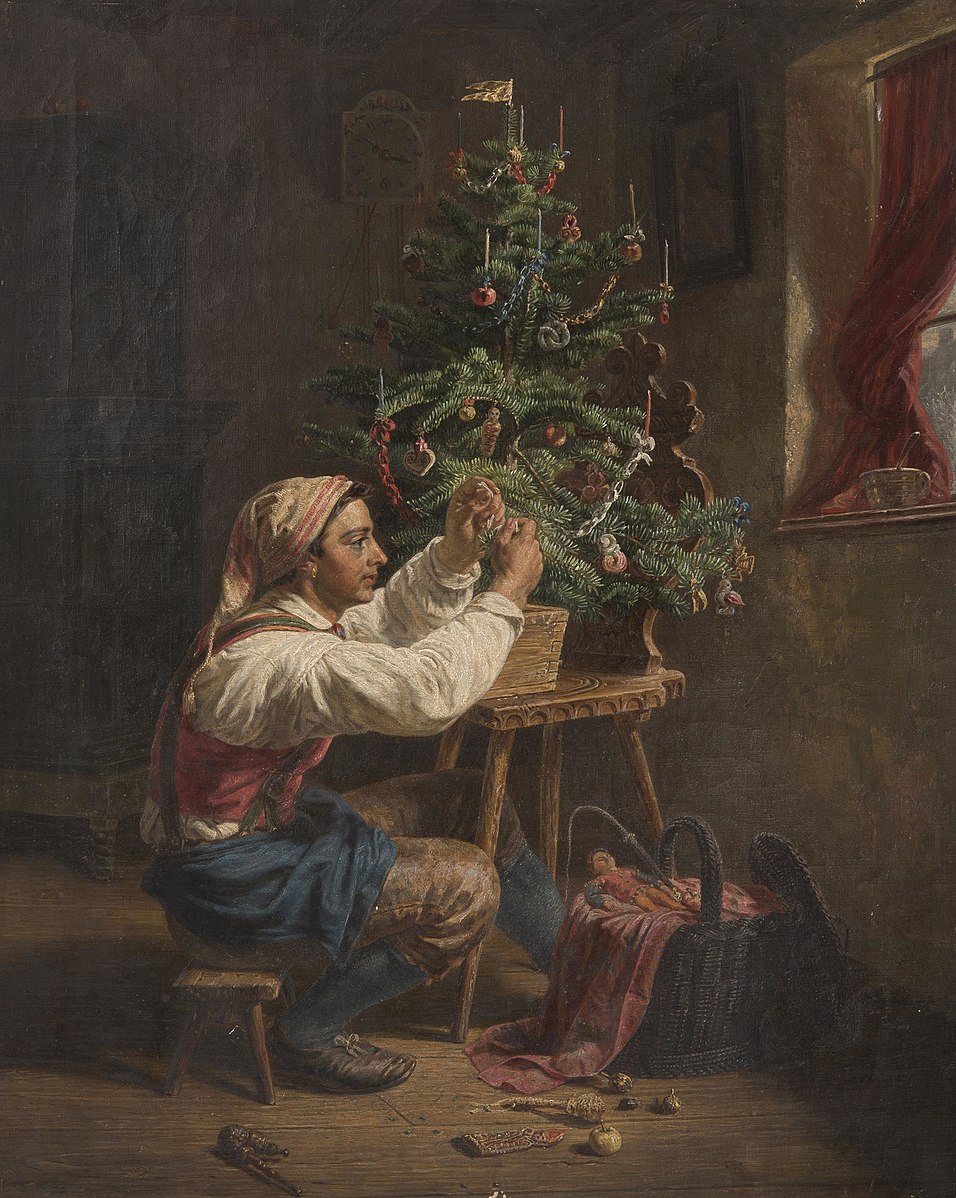
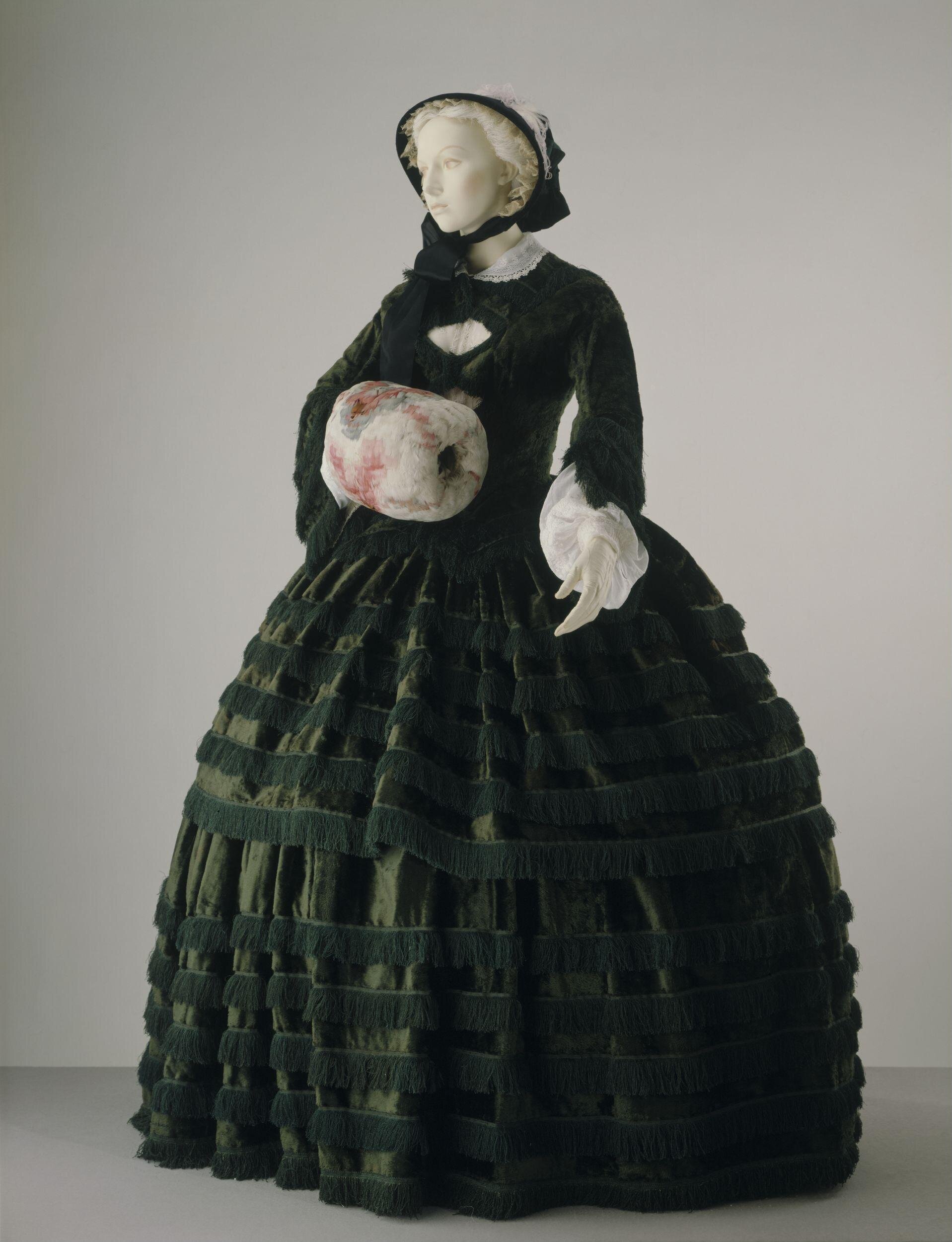
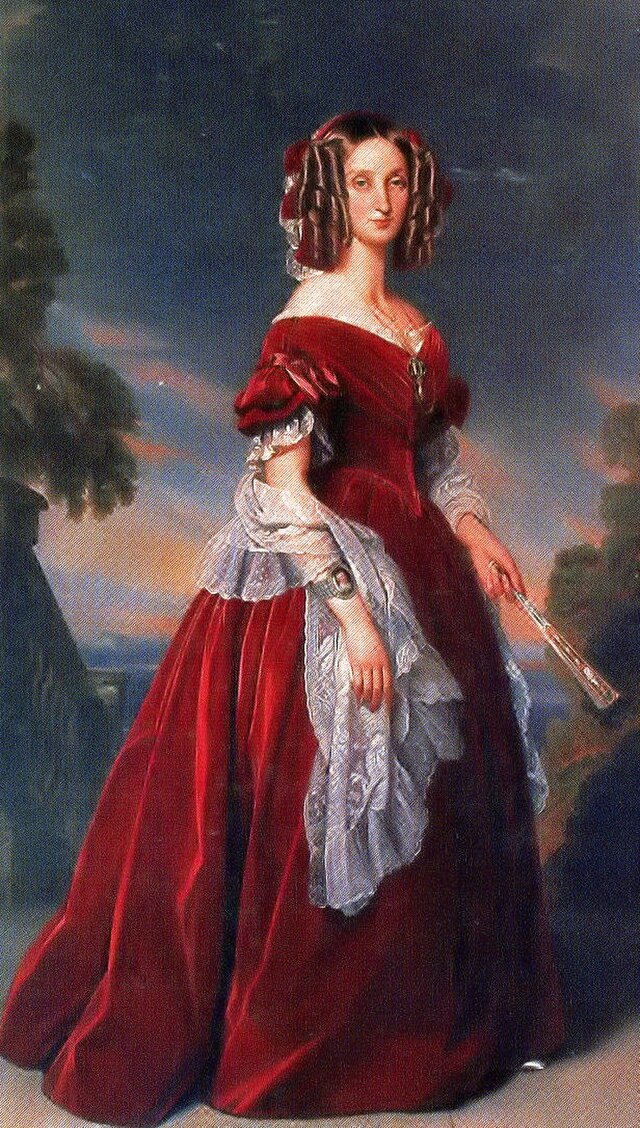
I don’t think they WERE regularly cleaned. Aired, yes, but cleaned, no. There were sometimes pads called dress shields that were put into the armpits to help with sweat. For great info on midwestern history check out the MOMCC…Midwest Open Air Museum Coordinating Council. They’re hAvi g a conference in Springfield, IL next month.
Interesting & lovely article! I am watching “The Gilded Age” trying to picture my ancestors in those situations… uhh not exactly.
Hi Janice,
I would really hate to be in charge of cleaning those dresses and gowns. Especially after they drag them all over everywhere.
I’m working on a short story set in 1898 that involves a masked ball.